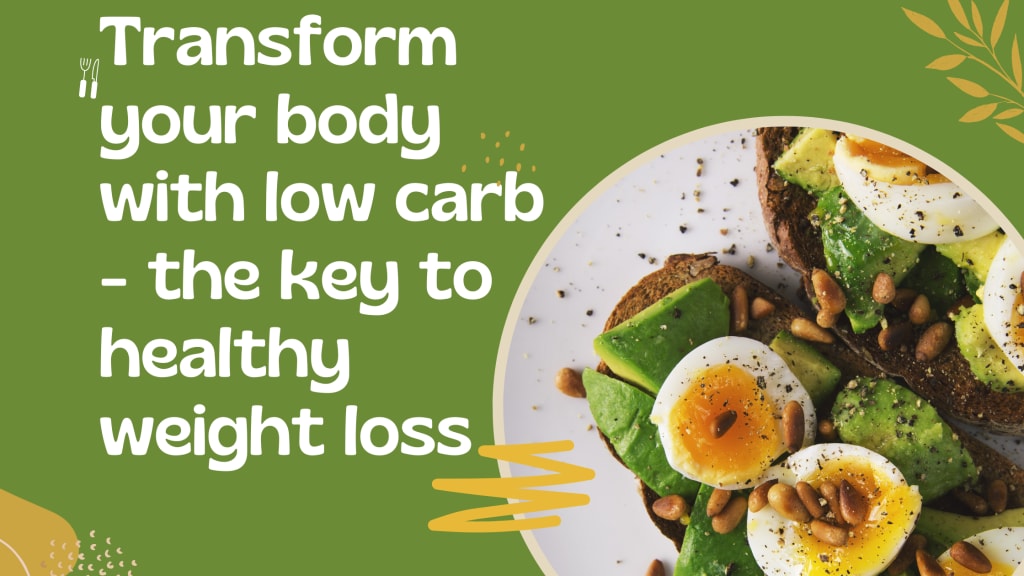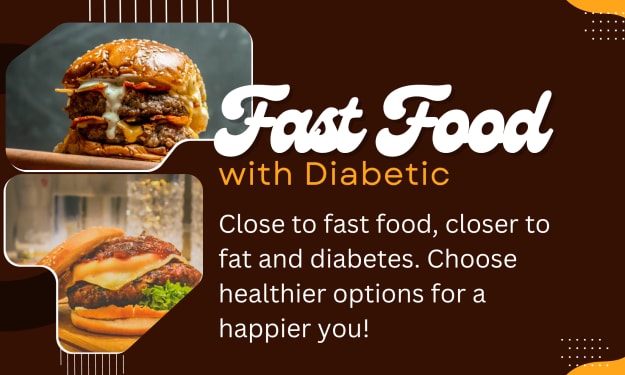Is A Low Carb Diet Best For Weight Loss?
Get lean with low carb - the science behind weight loss

Dieting, like fashion, goes through trends. During the 1950s dietary fat was considered bad, then in the 90s, it became carbs, now meat is considered a problem and let's not forget processed foods. The vilification of certain foods always leads to a new form of dieting, and there are often big changes in the foods you can buy in the supermarket as the food and drink industry adapts to customer needs.
Have you noticed how many gluten-free products are currently available on the shelves? How many more vegan products? It's a symptom of the increased interest in leading a vegan or gluten-free lifestyle. In the 1950s, the food industry investigated fat-free versions of foods, due to interest in low-fat diets.
History Of The Low-Carbohydrate Diet
But the low-carb diet has been around for years, unlike gluten-free diets or even low-fat diets. The first well-known low-carb diet was devised by William Banting in a letter that was originally published in the 19th century. Then there came the ketogenic diet in the early 20th century (now wildly popular again – and an extreme version of the low-carb diet).
But, it was the Atkins diet that really popularised low-carb eating plans. This diet, which Robert Atkins developed in 1972, was very well-liked. In the late 1990s and early 2000s, it had a second surge in popularity, which was immediately followed by the South Beach Diet.
Low-carb diets are still the first choice for the majority of new dieters today. Over the past five years, the popularity of ketogenic and gluten-free diets has grown significantly. But how successful are low-carb diets for losing weight? We must first determine the exact mechanism of weight loss in order to respond to this issue.
How Does Losing Weight Happen?
Imagine a bank vault full of money as a straightforward (but effective) approach to thinking about weight growth or decrease. This is your body's fat reserves. In this case, a person who is fat would have a very full bank account, but a person who is extremely lean would have a nearly empty safe. That is not a flawless simile or metaphor.
You spend a certain amount of money each day and make a certain amount of money, just as you take in a certain amount of calories each day and expend a certain amount. Your extra cash or excess fat will decrease if you spend more than you make (or exercise more than you consume). Because the surplus would be required to make the equation equal.
As long as your overall expenses and income are the same, it doesn't matter if you make less money each day or even every three days. Similar to how a two-day diet won't have an impact on your overall fat loss in a year.
Nevertheless, you will start to see a decrease in your spare cash/surplus calories if you make a consistent shift (pay an extra £1000 a month on rent or join the gym and burn an extra 1000 calories a week). or the opposite.
This is how losing weight operates. You will experience results over time, regardless of how much or how little the adjustment in your calorie balance (in vs. out) is. You can reduce your calorie intake (diet), increase your physical activity (exercise more), or do both at once to produce a calorie deficit (obviously the best option).
Despite what you may have been told, all diets operate in the same way. They operate by imposing restrictions on your food choices. This frequently, though not always, results in a calorie deficit. This does not imply that every diet is the same.
The most successful diet for maintaining health and weight has consistently been the Mediterranean diet. While the "drinking man diet" of the 1960s was roundly criticized for its detrimental effects on health and astounding disregard for nutrition (which is a shame, because it sounds incredible).
A healthy diet:
- Set up a calorie deficit by adhering to a few simple criteria (i.e. fewer carbs, less fat, etc.)
- Increase the number of vitamins and minerals in your diet. Be enduringly sustainable
If your diet fulfills every need, you're probably on to a winner.
Why Are Low-Carb Diets So Popular?
Low-carb diets have certainly been the most popular diet method, never really falling out of favor during the 20th century and into the 21st century. There are several reasons for this. The first is due to a misconception.
Many people believe that carbs themselves are bad, and that carbs are specifically responsible for weight gain. That's not entirely true, although we'll go into that in more detail in the next section. Carbohydrates are not unhealthy; in fact, they have many advantages. Most fruits and vegetables are composed almost entirely of carbohydrates. Even the ketogenic diet, the closest thing to a no-carb diet, still accounts for fruits and vegetables!
The second reason low-carb diets are so popular is that they are incredibly well-defined. Other than "Eat fewer carbs," there aren't many regulations. People can easily imagine what that means. Of course, some research may be needed, but it's mostly common sense. Replace bread with a low-carb alternative. Remove rice or pasta from your meals. Half your portion of roast potatoes at dinner. Easy to follow.
The third reason has to do with the popularity of vegan and gluten-free diets, low-carb or no-carb versions of the foods we love have never been more accessible. You can get cauliflower pizzas if you want. There are carb-free sauces, and zucchini-based pasta, it's never been easier or more economical to cut the carbs. There is also a lot less stigma. Because almost everyone has run out of carbs in their lifetime.
Is a Low Carbohydrate Diet Better For Losing Weight?
So let's respond to the original query. Is a low-carb diet preferable for losing weight? Regrettably, there is no easy way to explain this. On the one hand, we believe it is important to emphasize that no diet is more effective than another at helping people lose weight. Nothing else matters besides continuing to be in a calorie deficit.
There are numerous diets that fit the requirements we listed above (creating a calorie deficit, increasing or maintaining nutrients, and sustainability). The paleo diet satisfies all three requirements, as do the vegan, pescatarian, and Mediterranean diets. Supplements and inventive dish ideas can even make the keto diet satisfy all three requirements.
How maintainable the diet is actually what matters in the end. Do you anticipate continuing your diet in six months? A year, too? then two? The issue is that the majority of people just think about the now.
The low-carb diet is particularly effective in the short- to medium term. In order to determine which diets were most beneficial for both short- and long-term fat loss, Makris & Foster (2011) tested a number of different diets [1]. A low-carb diet is excellent for losing weight quickly, but after a year, there is little difference between low-carb and low-fat diets.
This is because low-carb diets are challenging to follow for an extended period of time. The culinary culture is too heavily influenced by carbohydrates. Cakes, potatoes, pasta, bread, and even fruit juice are demanded like crazy! A failing diet, unfortunately, leads to weight increase. This is where, over the coming weeks, months, and years, you gradually put on weight (with interest).
Does this mean that a low-carb diet is harmful to losing weight? Without a doubt! Just be aware that once you start to see results, you'll need to convert from a low-carb diet to one that is more sustainable.
The following scenario would be ideal:
- Track your calories, go low-carb for 12 weeks, and stay inside your desired range.
- After 12 weeks, try increasing your carbohydrate intake while lowering your fat intake.
- Your diet should now be more evenly distributed across proteins, carbs, and fats.
- In the long run, this will be simpler to monitor (assuming you measure calories).
- If you notice yourself relapsing, you can restart your 12-week low-carb regimen after a break.
You see, including carbohydrates in a balanced diet is not inherently bad. Dietitians love the Mediterranean diet because it is balanced, healthful, and delivers a sufficient amount of carbohydrates (and therefore fiber).
But people often consume far too many carbohydrates as a result of the Western diet. So, carbs alone do not cause fat loss, but carbohydrate overconsumption DOES. You can avoid this error by keeping track of your calories, so you won't need to consume as many carbs.
About the Creator
Helan D. Jhonson
Welcome,
I believe that a healthy lifestyle is needed for a happy life, I'm a writer passionate about physical and mental health. Follow me for tips, and inspiration to help you live your best life.
https://welnesswisdom.blogspot.com/
Enjoyed the story? Support the Creator.
Subscribe for free to receive all their stories in your feed. You could also pledge your support or give them a one-off tip, letting them know you appreciate their work.






Comments
There are no comments for this story
Be the first to respond and start the conversation.